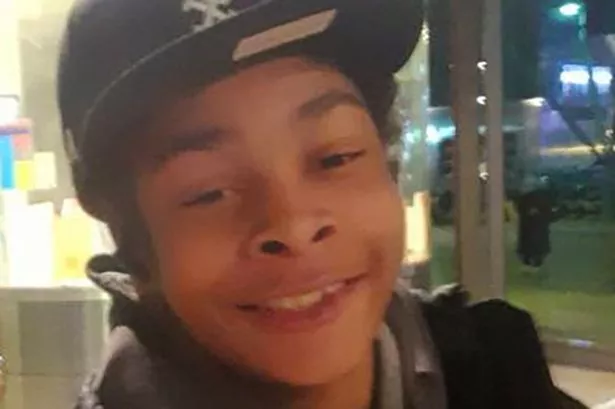The tragic death of 14-year-old Kelyan Bokassa, a budding drill rapper known as Grippa, has sent shockwaves through the community of Woolwich, South East London, and ignited a renewed focus on youth violence and knife crime. Kelyan was fatally stabbed on a bus in broad daylight, a horrific act of violence that underscores the vulnerability of young people and the urgent need for effective strategies to address the underlying causes of such tragedies. His attackers remain at large, leaving his family and friends grappling with grief and a desperate search for justice. The incident has sparked widespread outrage and calls for increased safety measures, highlighting the devastating impact of knife crime on families, communities, and society as a whole.
Kelyan’s burgeoning musical career as Grippa offered him a creative outlet and a sense of purpose. He found solace and expression in drill music, a genre often associated with gritty portrayals of urban life. While some critics point to the genre’s sometimes violent lyrics as potentially contributing to a culture of aggression, others argue that it reflects the harsh realities faced by many young people growing up in disadvantaged communities. For Kelyan, music may have been an escape from the challenges he faced, a way to channel his emotions, and a dream of a brighter future. His untimely death has silenced a young voice and robbed him of the opportunity to fulfill his potential.
The investigation into Kelyan’s murder continues, with police appealing for witnesses and information that could lead to the apprehension of those responsible. The absence of arrests to date underscores the complex nature of tackling knife crime, which often involves a combination of societal factors, including poverty, lack of opportunity, gang affiliation, and the easy accessibility of weapons. The investigation is not just a pursuit of justice for Kelyan; it’s a critical step in addressing the wider issue of youth violence and preventing further tragedies. The community’s cooperation with law enforcement is crucial in piecing together the events that led to Kelyan’s death and bringing those responsible to justice.
The incident has reignited the debate surrounding knife crime prevention and intervention strategies. Many community leaders, politicians, and organizations are calling for a multi-pronged approach that addresses the root causes of youth violence. This includes investing in early intervention programs that support vulnerable young people, providing educational and employment opportunities, strengthening community policing, and implementing stricter measures to control the availability of knives. Furthermore, addressing the underlying social and economic factors that contribute to a culture of violence is crucial. This requires a collaborative effort involving government agencies, community organizations, schools, families, and individuals working together to create safer environments for young people.
The impact of Kelyan’s death extends far beyond his immediate family and friends. The tragedy has resonated with communities across the country, reminding everyone of the devastating consequences of knife crime. It has sparked conversations about the need for greater societal responsibility in protecting young lives and creating a culture of respect and non-violence. The outpouring of grief and support following Kelyan’s death reflects a collective desire for change and a commitment to working towards a future where such tragedies are prevented. The incident serves as a stark reminder of the urgent need to invest in the well-being of young people and create communities where they feel safe, valued, and supported.
Kelyan Bokassa’s story is a tragic illustration of the devastating impact of knife crime. His death should not be in vain. It must serve as a catalyst for meaningful action to address the complex issues that contribute to youth violence. Remembering Kelyan means not only mourning his loss but also working towards a future where young people are empowered to reach their full potential, free from the fear and threat of violence. His untimely demise underscores the urgent need for a comprehensive and sustained effort to tackle knife crime, support vulnerable youth, and create safer communities for all. Only through collective action, encompassing prevention, intervention, and community engagement, can we hope to prevent future tragedies and ensure that no other young life is cut short by senseless violence.














